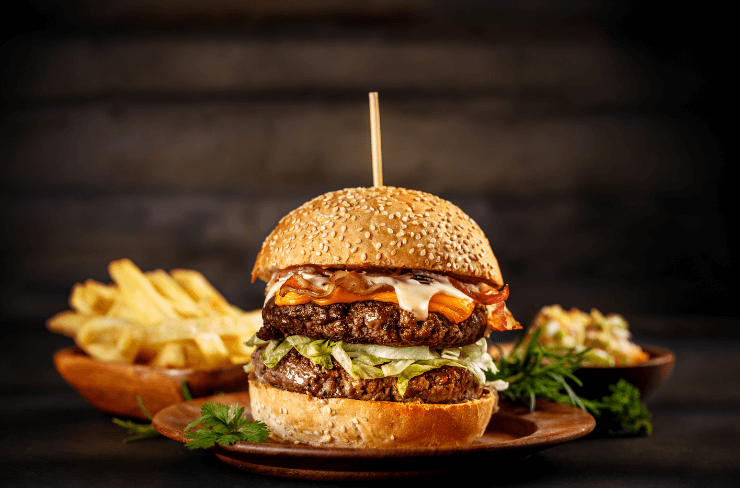Digital Marketing for Restaurants: How to Get Found Online

Getting found online is -- or should be -- the number one goal for every restaurant. Just because your business is conducted in a brick and mortar venue, does not mean that you can afford to skimp on your efforts online, especially now that people are moving around much less.
We all know that Dubai is not set up to be a walkable city and now with the COVID-19 situation in play as well, it’s more important than ever to have all your digital ducks in a row.
How to Get Found Online
Unlike trying to influence where a customer walks on the street, it is actually relatively easy to influence what a customer finds online. By understanding the tactics that feed the algorithms which govern our online world, restaurants can employ strategies that ensure they are in the best place to be seen by the customers they want to attract on-site.
Search engines are the gateway for consumers to find what they want online. The purpose of search engines is to deliver users with the most relevant search results to match their query. Thankfully, for search engines to offer value to users, they need to supply them with the best results. It is, therefore, in the interests of Google and the others to teach restaurants how to be found by their algorithms to come up in the top results.
Google My Business Listing
Whether you're a local or a tourist, chances are you search for local venues via Google. Every time someone searches for "restaurants near me" in an online search, Google pulls up information from Google My Business listings to offer searchers a list of the most appropriate venues nearby. They have even developed their in-map feature to make it easier for customers to find venues directly from within Google Maps.
Getting listed in these searches is as simple as setting up a Google My Business listing and ensuring that it is optimised with all the relevant keywords that your prospect consumers would search for when they are looking for a restaurant. If you are an Italian restaurant, for example, make sure that phrases like "Italian restaurant Dubai" are used, or "best gnocchi Dubai".
Reviews are also an important part of a Google My Business listing. Encourage customers to review and make sure you respond. Positive reviews feed the algorithms that put you closer to the top. And a review that says you have "the best gnocchi in Dubai" will be picked up when someone searches "best gnocchi Dubai"/
Search Engine Optimisation (SEO)
SEO is all about making everything on your website easily scannable by Google and the other search engines to find the information they need to put you at the top of their search results. SEO principles should be applied to everything you do online, from your Google My Business listing to your website, social and whatever else.
Keywords - Ensure that all of your online pages are keyword optimised. Like the example above: if you are an Italian restaurant, make sure that phrases like "Italian restaurant Dubai" are used, or "best gnocchi Dubai". Ensure that your meta-data is also optimised for keywords and accurately describes the pages.
Relevant information - Customers go to your website to find out where you are, how to contact you, when you're open, and what food you serve. Make this information readily available. List your hours, contact details and any particulars that customers may need to know, such as if you serve a different menu during lunchtimes or on the weekend.
Menu - Most customers visit restaurant websites to browse the menu. If you do not have an online menu, make sure that your website menu is regularly updated to match what's available at the venue. If you do have an online digital menu, this significantly boosts SEO by having all of your menu dishes indexable and easy for Google to find. Again, be sure that relevant keywords are considered to get your menu items in front of the masses.
Calls-to-action's (CTA) - Make it easy for your customers to make bookings. While you should have a contact page on your website, don't count on customers to navigate there. Create quick click buttons that prompt customers to book effortlessly.
Mobile Optimisation
In 2015 Google released a new mobile-friendly ranking algorithm that was designed to favour mobile-friendly pages in Google’s mobile search results. Since then, they have continued to develop their algorithms with a mobile-friendly philosophy in mind. This is great for consumers, considering 52 per cent of all worldwide online traffic was generated through mobile phones in 2018. But for any business with a non-mobile-friendly website, it meant becoming almost invisible in mobile searches.
Optimising for mobile means looking at the site design, site structure, page speed and other factors to make sure it is mobile-friendly. Responsive websites automatically work with the device a site is being viewed on - giving it the best layout depending on the device. And to help with page speed, restaurants (and everyone else) should avoid using flash and pop-ups.
If you have a responsive site, the on-site SEO will be the same on both mobile and desktop. If you have a dynamic serving or separate site configuration, you will need to look at the on-site SEO for these versions to ensure they are effectively optimised.
Algorithms are ever-changing, and new tactics are coming out regularly to help restaurants rank highly. While it's worth conducting SEO reviews frequently, what's most important is to stick to the basics: offer relevant information that is keyword optimised, mobile-friendly, easy to find and always encouraging visitors to book.
Join the Culinary Revolution!
Transform your dining experience with Redro. Boost efficiency, delight diners, and fire up your sales. It’s more than a menu—it’s a game-changer for your brand.




